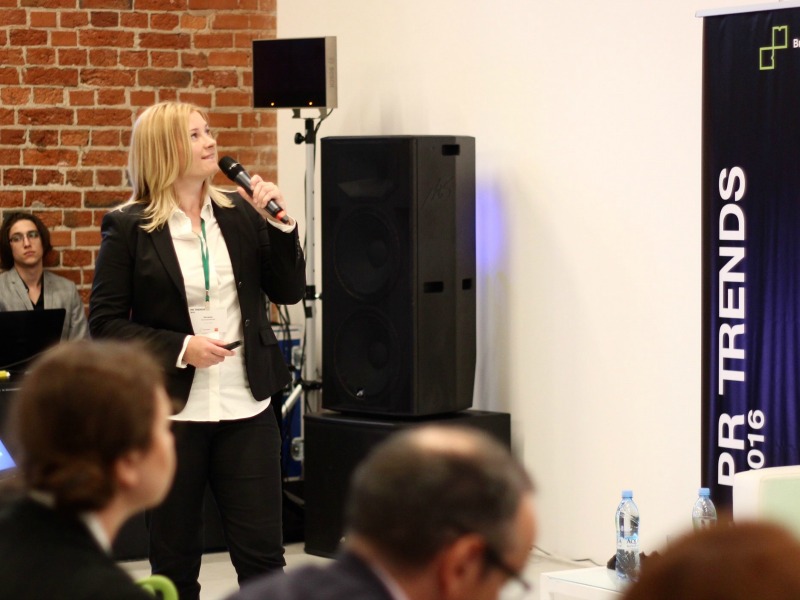Paul Holmes 07 Jun 2016 // 8:19AM GMT

MOSCOW: PR budgets in Russia declined last year, according to new research from Buman Media, presented today at the PR Trends conference in Moscow, presented in partnership with The Holmes Report.
Today the average annual PR budget ranges from $30,000 to $100,000, said Buman Media chief executive Natalia Bucelnikova (pictured). In 2014, 51% of companies surveyed said that their PR budget was at least $100,000. Only 20% of companies in Russia can afford a PR budget of 7 million rubles ($), while almost as many (19%) do not have any PR budget this year.
In a related development, for the first time in three years most companies (56%) said they did not outsource work to the PR agencies, compared to 60% who outsourced work to agencies last year.
The requirements for those agencies have changed too. According to Bucelnikova, the most popular skills requested by clients are analytical skills—with 45% saying that their agencies lack such skill. At the same time, last year’s greatest concern was lack of creativity, cited by 71% of respondents. This year, the lack of creativity was noted by just 22% of respondents—perhaps suggesting a new emphasis on business results over big ideas.
"The PR market in Russia is rapidly changing,” said Buchelnikova. “Already it is clear that creativity is becoming less important whereas data collection and analysis are gaining momentum. Analytics, the ability to measure certain indicators—whether web traffic or number of clicks—this is now a priority for companies.
“PR departments and communication agencies are now required to adapt to the new reality and quickly adjust to the rules. How fast the market players will adapt to the new reality will determine their success and further development".
That notion resonated with Olga Podoinitsyna, a member of the board at VTB Capital and one of Russia’s most respected communications executives. “I am not surprised with results of this year Buman Media research,” she told the PR Trends conference. “Analytical skills and strategic vision are crucial if we speak about advanced PR.
“What is quite surprising, why these fundamental skills was not on top previous years. If an agency doesn't know an industry of a client, has no expertise in the market a company works on and has no global vision, it cannot propose creative and efficient solution.”
Inside organizations, according to the Buman research, the majority of respondents (43%) said that the structure has not changed. But in 26% of companies the number of PR employees declined, while just 13% saw their departments grow—and 16% of respondents admitted that they do not have PR department.
For several years in a row, online media is considered the most effective tool for the brand promotion in Russia. This year, 57% of respondents noted its effectiveness in reaching their communication goals. Just behind are social networks (52%) and special events (28%).
Podoinitsyna, meanwhile, highlighted another challenge for communicators: understanding new international markets that Russian companies are expanding into. Discussing the challenges resulting from Russia’s sometimes troubled image in the rest of the world, she talked about VTB’s launch in Dubai, using a video that emphasized Russian history and Russian values, and its activities in London, where VTB has its headquarters in the shadow of the Bank of England and flies its flag proudly.
“We took the risk to position ourselves as national champions, and we have achieved great success,” she said, pointing to key performance indicators related to specific messages and critical issues.


































.jpg)

















